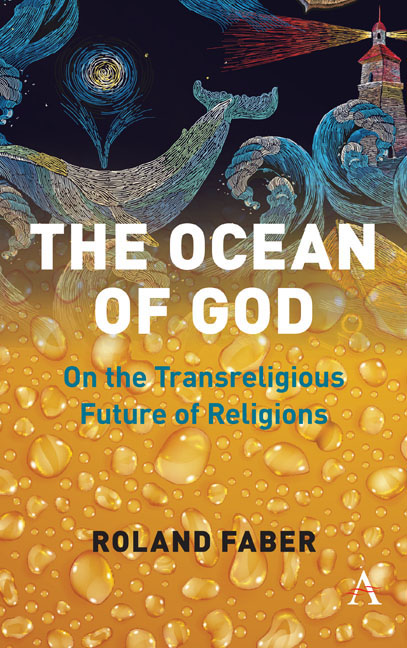Book contents
- Frontmatter
- Dedication
- Contents
- Introduction
- Part I Paradigms of Unity and Plurality
- Part II Negotiations of Multiplicity
- Part III Transreligious Horizons
- Chapter Eleven The Transreligious Discourse
- Chapter Twelve Other Religions: From Coinherence to Coinhabitation
- Chapter Thirteen The Earth and Other Worlds: A Story of Cosmic Magnitude
- Chapter Fourteen The Future of Religions
- Chapter Fifteen One with All Religions
- Glossary
- References
- Index
Chapter Fourteen - The Future of Religions
from Part III - Transreligious Horizons
Published online by Cambridge University Press: 09 July 2019
- Frontmatter
- Dedication
- Contents
- Introduction
- Part I Paradigms of Unity and Plurality
- Part II Negotiations of Multiplicity
- Part III Transreligious Horizons
- Chapter Eleven The Transreligious Discourse
- Chapter Twelve Other Religions: From Coinherence to Coinhabitation
- Chapter Thirteen The Earth and Other Worlds: A Story of Cosmic Magnitude
- Chapter Fourteen The Future of Religions
- Chapter Fifteen One with All Religions
- Glossary
- References
- Index
Summary
The East and West may hold each other's hands and become as lovers. Then will [humanity] be as one nation, one race and kind— as waves of one ocean. Although these waves may differ in form and shape, they are waves of the same sea.
— ‘Abdu'l-BaháIn light of the cosmic magnitude and ecological depth of the question of religious unity and religious pluralism, we may ask anew and in new form: In what sense will the future of religions be transreligious, if there will be either religion in the future of humanity, or humanity as such, as it will (have to) constitute a society of peace in a world of becoming or be doomed to fade into the evolutionary sinks of becoming? In the context developed in this book, this question of “transreligiosity” can now be specified in the following form: In what sense, given the Bahá’í synthesis of the mystery of diversity and unity, the polyphilic pluralism and the presupposition of a transreligious future of religion(s) to be a matter of “survival” of either religion or humanity, does the horizontal pluralistic axis, the vastness of the multiplicity of religious appearances, point toward novelty, freshness and renewal of religion, thereby integrating with the vertical pluralistic axis, as the infinite spiritual development in one universal coextensive horizon? And in what sense (given a Bahá’í and process vision of such an integration proposed in this book) does this universal hermeneutic speak to the problem of the overcoming of religious strife and oppositional antagonisms, as the active impulse underlying religious pluralism and unification? In other words, I ask: What, in light of our considerations, may be the (kinds of) “transreligious” future(s) of religion(s)— maybe even beyond humanity and not only on Earth?
Whitehead had asked this question in similar awareness of the cosmic context of the religiosity of all existence (as just mentioned in the previous chapter), and he answered with the necessity of, and surprising hope in, religion to become (or remain) the basis for more divergent views with regard to the concrete forms this future might take. On the one hand, Whitehead recognizes that because of the “great social ideal for religion […] it should be the common basis for the unity of civilization” such that it is precisely religion that alone “justifies its insight beyond the transient clash of brute forces.”
- Type
- Chapter
- Information
- The Ocean of GodOn the Transreligious Future of Religions, pp. 169 - 188Publisher: Anthem PressPrint publication year: 2019



